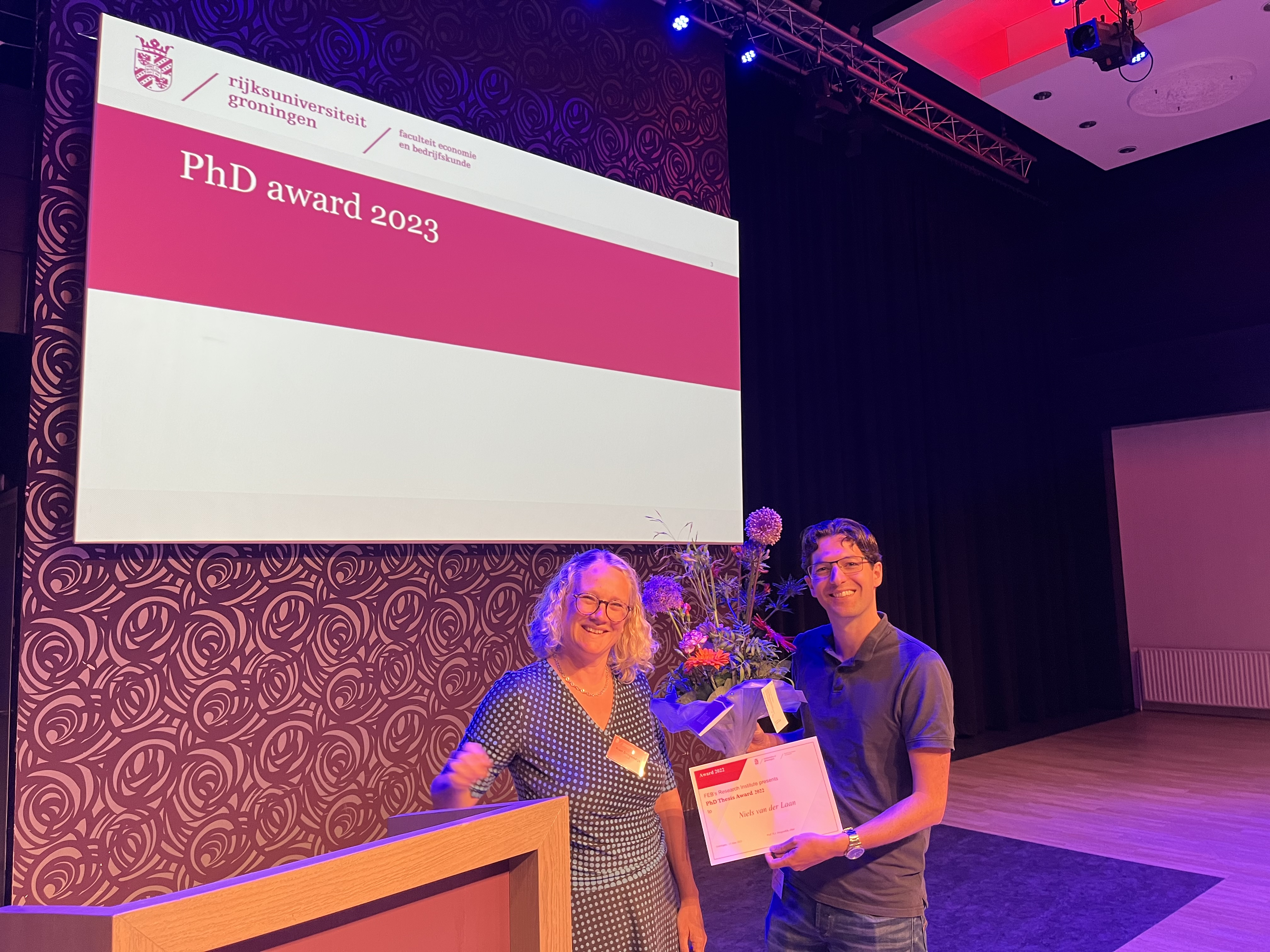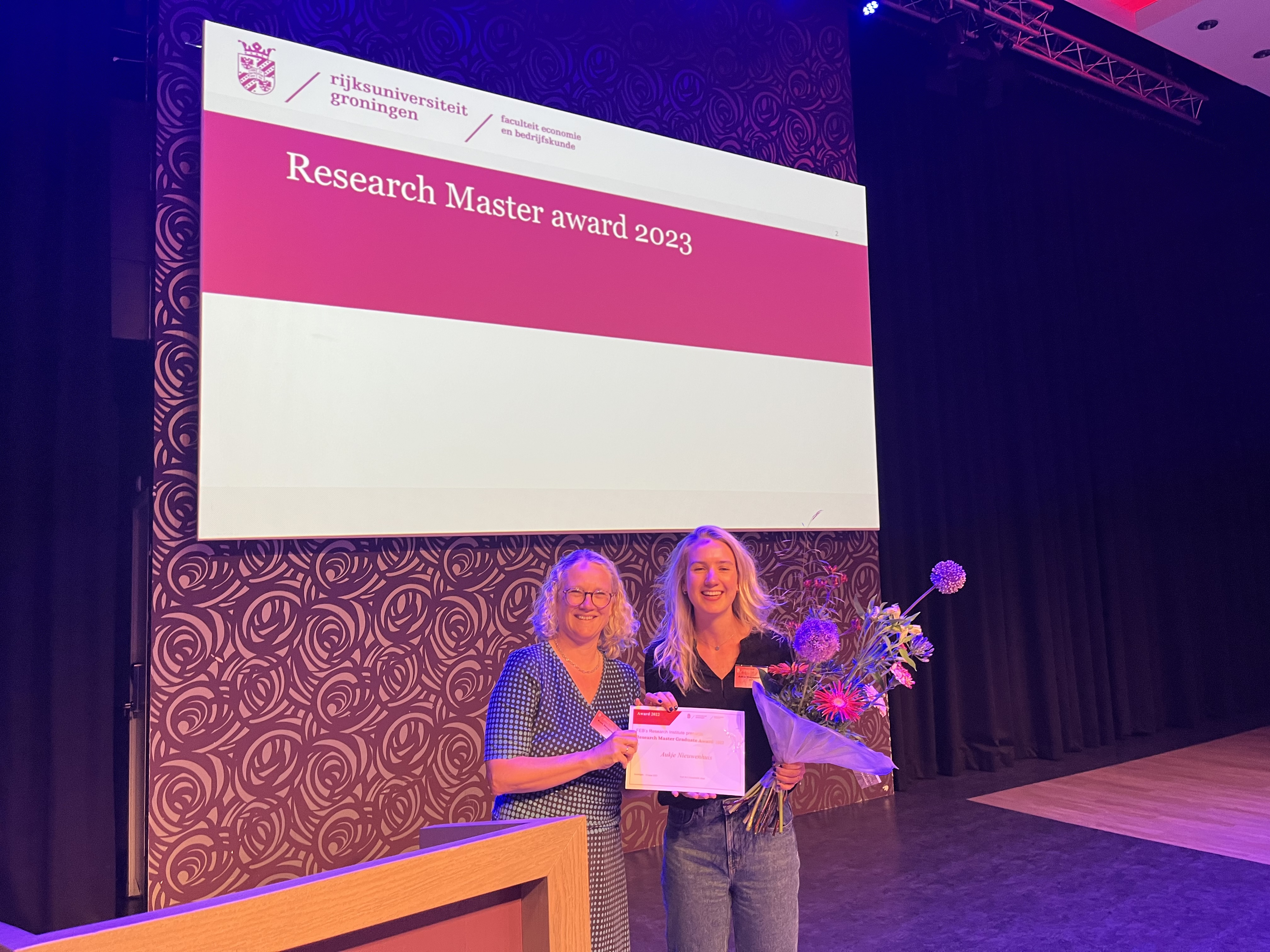Niels van der Laan and Aukje Nieuwenhuis win FEB Research Awards 2022
The awards for best PhD thesis and best graduate of the research master were presented at the PhD conference held on June 15. Niels van der Laan won the Best PhD Thesis Award 2022 and Aukje Nieuwenhuis the Research Master Graduate Award 2022.

PhD thesis award 2022
Niels van der Laan, who obtained his PhD at FEB in January 2022 and is currently a consultant at software company ORTEC, received the award for his PhD thesis ‘Approximate and exact convexification approaches for solving two-stage mixed-integer recourse models’, supervised by Ruud Teunter and Ward Romeijnders. With his thesis, he has contributed to better decision making under uncertainty by designing efficient solution methods for mixed-integer recourse models. Van der Laan’s newly developed solution methods have the potential to provide decision support for a wide range of applications in for example energy, healthcare, finance, and logistics. Moreover, current research is building on and is inspired by his work. Van der Laan obtained his PhD degree cum laude, and three of his chapters are published in international top journals: two in Operations Research and one in Mathematical Programming. Van der Laan was not able to attend the PhD Conference, so his co-supervisor Romeijnders did the honors.

Research Master Graduate Award 2022
Aukje Nieuwenhuis, who is currently a PhD candidate at FEB, received the award for her thesis ‘Gender-stereotypical labor market behavior across generations: evidence from conditional second moments’, supervised by Agnieszka Postepska and Rob Alessie. The main objective of her master’s thesis was to isolate the causal effect of parental gender-stereotypical behavior on children’s career choices from the effect of selection. Two explanations for the observed positive inter-generational correlation in gender-stereotypical labor market behavior are selection and causality. A causal relationship implies that holding gender-stereotypical jobs affects parenting in a way that influences children’s choices and leads to more or less gender-stereotypical behavior. A selection effect, on the other hand, captures unobserved transfers from parents to children: parents who express gender-stereotypical behavior have children who display similar behavior, regardless of parental choices. Using data from Germany, Nieuwenhuis estimated the causal and selection effect. Earlier this year, Nieuwenhuis also won the Jan Brouwer Thesis Award in the category Economics for her master’s thesis.
More news
-
10 February 2026
‘Regeneration starts where courage meets imagination’
-
09 December 2025
Are robots the solution?
